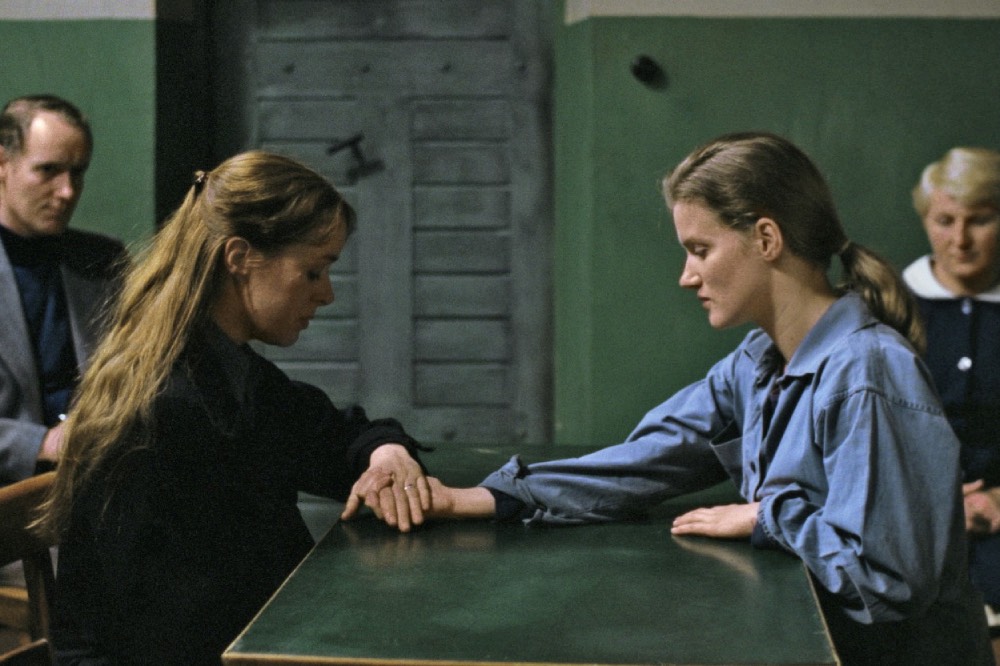Die bleierne Zeit [OmeU], D 1981, R: Margarethe von Trotta mit Jutta Lampe, Barbara Sukowa, Rüdiger Vogler, 107 Min
Im Anschluss Vortrag von Nora M. Alter (Professorin für Film und Medienkunst, Temple University, Philadelphia) In englischer Sprache, Präsentiert vom Neuen Berliner Kunstverein
On October 8, Nora M. Alter will give a lecture on one of Margarethe von Trotta’s career highlights: Die bleierne Zeit (The German Sisters / Marianne and Juliane, 1981). Her third feature film was inspired by the Ensslin sisters, who both became politically engaged during the 1968 movement but in very different ways.
Von Trotta set out not only to depict the violence of the early 1970s but also to evoke the stifling atmosphere of 1950s post-Nazi, postwar West Germany, in which she and the Ensslin sisters – children of the perpetrator generation – were raised.
Die bleierne Zeit belongs to the tradition of New German Cinema of the 1960s and 1970s, which sought to provoke critical reflection on West German society, history, and politics.
With Die bleierne Zeit, von Trotta became the first female director to win the Golden Lion at the Venice International Film Festival.
Part of the exhibition
Margarethe von Trotta
Until November 9, 2025
Tue–Sun 12–6 pm / Thu 12–8 pm
@neuerberlinerkunstverein
A project by Neuer Berliner Kunstverein (n.b.k.) in cooperation with Deutsche Kinemathek and Babylon cinema, Berlin.
-----------------------------------------------------
Marianne und Juliane sind Pastorentöchter. Die jüngere der beiden, Marianne, hat sich dem „bewaffneten Kampf“ in der Bundesrepublik verschrieben und ist in den politischen Untergrund abgetaucht. Juliane ist Redakteurin einer feministischen Frauenzeitschrift; den Radikalismus ihrer Schwester verurteilt sie.
Als Marianne verhaftet wird, besucht Juliane sie wiederholt im Gefängnis. Ihre Gespräche berühren auch die gemeinsame Kindheit: die strenge Erziehung des Vaters, die Bombennächte des Zweiten Weltkriegs, den Schrecken der NS-Verbrechen und frühe Formen jugendlicher Rebellion.
Als man Marianne tot in ihrer Zelle findet, will Juliane nicht an Selbstmord glauben …
Trailer:
